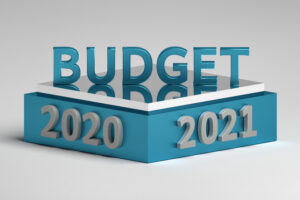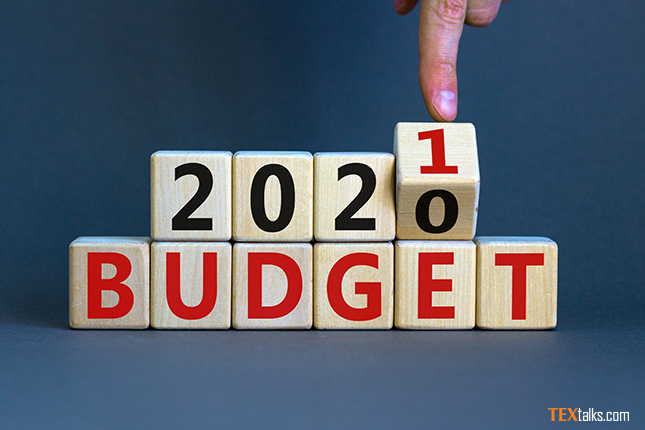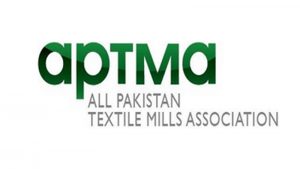What is for the textile sector?
The Budget 2021-2022, 3rd of the current government, has been announced, and it was expected to be a pro-industry budget by the business community. The new budget was being awaited much by the textile sector due to favorable economic indicators during the last six months. For example, economic growth was based on 3.57% industrial growth. With an increment of Rs. 700 billion compared to the previous budget, the total value of the current budget is Rs 8.49 trillion with a GDP of 4.8%. However, the expectations have not been fulfilled regarding the textile sector’s aspirations.
 The industrial sector has been one of the focuses of the government. A relief of Rs 119bn has been provided regarding customs duty, income tax, and sales tax for industries in the current budget. Among these, a relief of Rs 19bn has been offered to sales tax and Rs 42bn for customs duty. In addition, the emerging information technology (IT) sector has been allocated Rs 58bn. One of the salient features of the current budget is duty-free imports of various raw materials. This tariff line (duty-free raw materials) consists of 20,000 items which are 20% of all imports. These raw materials are used for various industries, including textiles. The tariff has either been removed entirely or reduced significantly on the imports of 584 tariff lines regarding regulatory duty and customs duty to support industrial growth. Among 584 tariff lines getting benefits, fabric and other textile-related products are present.
The industrial sector has been one of the focuses of the government. A relief of Rs 119bn has been provided regarding customs duty, income tax, and sales tax for industries in the current budget. Among these, a relief of Rs 19bn has been offered to sales tax and Rs 42bn for customs duty. In addition, the emerging information technology (IT) sector has been allocated Rs 58bn. One of the salient features of the current budget is duty-free imports of various raw materials. This tariff line (duty-free raw materials) consists of 20,000 items which are 20% of all imports. These raw materials are used for various industries, including textiles. The tariff has either been removed entirely or reduced significantly on the imports of 584 tariff lines regarding regulatory duty and customs duty to support industrial growth. Among 584 tariff lines getting benefits, fabric and other textile-related products are present.
The majority of the industrialists seem to be happy with the current budget. The presidents of the Islamabad Chamber of Commerce and Industry (ICCI), Faisalabad Chamber of Commerce & Industry (FCCI), Federation of Pakistan Chambers of Commerce & Industry (FPCCI), Pakistan Industrial and Traders Association Front (PIAF), Lahore Chamber of Commerce and Industry (LCCI), and Karachi Chamber of Commerce & Industry (KCCI) separately commented on the benefits of Budget 2021-2022. They said that the budget is industry-friendly and termed it “balanced,” expecting to lead the economy in the right direction to achieve better growth and expansion targets. The capital gains tax has also been reduced from 15% to 12.5% for 2021-2022. In addition, till June 30, importers can benefit from a 5% drop in the customs duty on yarn.
All Pakistan Textile Mills Association (APTMA) also termed the budget “a good step in the right direction.” Contrarily, criticism has also been raised by various industrialists and experts highlighting the shortcomings of the current budget. One of the main concerns across the industrial level is the missing rationalization of power tariffs. Pakistan Apparel Forum (PAF) has also said that the textile sector has not received the required attention to reach $26 billion foreign exchange in the next fiscal year. Pakistan Readymade Garments Manufacturers and Exporters Association (PRGMEA) also showed deep concerns over the current budget mentioning that it is not sufficient for the textile sector to meet the expanding exports of the country. The other major problem is that the textile industries have asked for “zero-rating,” which has been ignored in the budget.
On June 16, a joint meeting of various textile associations was held with Abdul Razak Dawood, Advisor to Prime Minister on Commerce, Investment, and Textile, to discuss various issues in the context of Federal Budget 2020-21. The participants from KCCI, PTEA, PREGMA, APBUMA, Towel Manufacturing Association (TMA), and PHMA raised their concerns with Commerce Minister for Zero Rating, Liquidity Crunch for SMEs due to Sales Tax, DDT Payments, and budgetary allocation. Mr. Dawood said that he had suggested allocating Rs.50 billion on DDT support for the year to Minister Finance. He commented that duty has been brought to zero on yarn prices and may be extended as required.
 It could be concluded that the budget is a mix of expectation and deprived feelings for the textile sector. However, on the other hand, experts say the budget, which should have advocated manufacturing and maximizing agriculture yields, is now more relevant to food security and affordability. There is also no relaxation on the import of state-of-the-art textile manufacturing machines. The technologically advanced machines usually are designed for better production, energy efficiency, and chemical saving aspects. If Pakistan’s government does not cross-check the taxes on importing these machines, our sector will lose the technologically advanced edge over its competitors. Therefore, Industrialists ask for a kind revision to get maximum support for the textile sector. Fingers are crossed.
It could be concluded that the budget is a mix of expectation and deprived feelings for the textile sector. However, on the other hand, experts say the budget, which should have advocated manufacturing and maximizing agriculture yields, is now more relevant to food security and affordability. There is also no relaxation on the import of state-of-the-art textile manufacturing machines. The technologically advanced machines usually are designed for better production, energy efficiency, and chemical saving aspects. If Pakistan’s government does not cross-check the taxes on importing these machines, our sector will lose the technologically advanced edge over its competitors. Therefore, Industrialists ask for a kind revision to get maximum support for the textile sector. Fingers are crossed.




